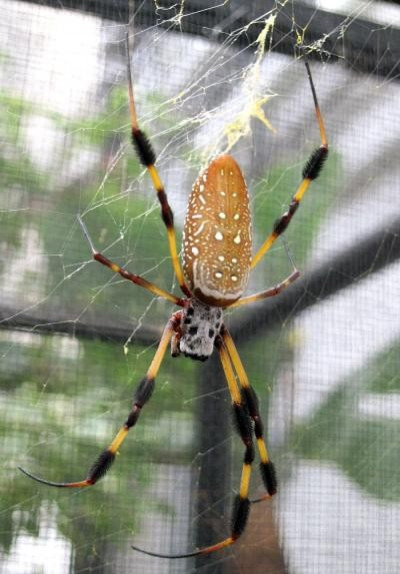Spider Silk Conducts Heat Better than Most Metals

Spider silk is an excellent conductor of heat, according to a surprising new study released Monday.
Engineers tested the thermal conductivity of silk spun by golden silk orbweavers, a spider known for its distinctive golden web, and found the silk conducted heat better than silicon, aluminum and iron, all considered effective thermal conductors.
This is very surprising because spider silk is organic material, Xinwei Wang, lead author and an associate professor of mechanical engineering at Iowa State University, said in a statement. For organic material, this is the highest ever. There are only a few materials higher - silver and diamond.
Researchers found spider silk to be 3 percent more conductive than copper and almost 70,000 percent more conductive than human skin.
Unlike other materials, spider silk becomes more conductive as it stretches, researchers found. The silk became 20 percent more conductive when stretched to 20 percent of its limit.
The discovery of conductivity in spider silk could lead to better and more flexible heat-dissipating parts for electronics, better clothes for hot weather, bandages that don't trap heat and many other everyday applications, Wang said in a statement.
The journal Advanced Materials published the study Monday.
The researchers tested the thermal conductivity of dragline silk, which spiders use to tether their webs in place. Scientists have measured dragline silk to be as strong as steel in terms of tensile strength, according to a 2008 study published in the Journal of Material Science.
Other types of silk include capture-spiral silk, a very sticky silk spiders use to capture prey, and tubiliform silk, a stiff silk used to protect egg sacs. Some spiders can spin as many as seven different types of silk.
Researchers from Japan's Nara Medical University recently found another use for spider silk -- violin strings. Chemists used over 60,000 individual silk strands from over 300 golden silk orbweavers to make four violin strings, according to a study published in Physical Review Letters on Feb. 26.
While the strings were not as strong as traditional catgut strings, the spider silk strings were much strong than modern aluminum strings.
The tone of the spider silk strings is soft and more profound, according to lead researcher Shigeyoshi Osaki.
© Copyright IBTimes 2024. All rights reserved.





















